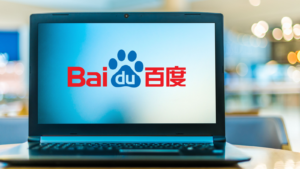The Unveiling of Apple’s AI Strategy
Entering the year, Apple (NASDAQ:AAPL) kept investors on their toes with a veil of uncertainty surrounding its artificial intelligence (AI) strategy. As the first half of the year draws to a close, a glimpse into Apple’s foray into the AI landscape is beginning to emerge. The tech giant from Cupertino sets its sights on intelligence not only for utility but privacy and security as well, eschewing the conventional term “artificial.” Opting for a deliberate and cautious approach may just turn out to be a stroke of genius.
Paving the Way with Partnerships
For now, Apple has decided to collaborate with OpenAI to integrate ChatGPT into Apple Intelligence. In the future, Apple users may have a multitude of large language models (LLMs) to choose from. However, when it comes to the vast Chinese market, Apple’s iOS 18 won’t be powered by ChatGPT. In a bid to cater to the Chinese consumer base, Apple is exploring alliances with local AI firms to introduce a native LLM to its iPhone users. Here are three formidable contenders that could potentially strike a deal with Apple.
1. Baidu (BIDU)
Baidu (NASDAQ:BIDU) emerges as a prime candidate among Chinese internet companies to join forces with Apple in the realm of AI. Its Ernie bot, akin to ChatGPT, boasts a crucial distinction – compliance with the regulations set by the Cyberspace Administration of China. Adhering to these guidelines is paramount, as a failure to do so could result in shutdowns and hefty penalties. By partnering with Baidu, Apple could significantly mitigate the regulatory risks associated with releasing an in-house LLM.
Beyond Ernie AI’s capabilities, BIDU stock trades at an attractive discount with a trailing price-to-earnings ratio of 11.8x. Even if a collaboration with Apple eludes Baidu, its latest iteration of Ernie (4.0 Turbo) has the potential for substantial success, boasting a user base of 300 million.
2. Alibaba (BABA)
Similar to Baidu, Alibaba (NASDAQ:BABA) stands out as a Chinese tech titan ripe for a resurgence. With over a 75% decline in its stock value, BABA appears severely undervalued, presenting an enticing prospect for investors eyeing growth opportunities in AI and e-commerce. Sporting a P/E ratio of 17.1, Alibaba offers a more affordable alternative compared to its U.S. counterparts.
Having honed its expertise in integrating AI across diverse products, Alibaba presents a strong case for a partnership with Apple. It’s not just Alibaba’s LLM, Tongyi Qianwen, that garners attention, but also its ability to tailor AI solutions for specific applications, potentially enhancing the Apple Intelligence experience. While a collaboration with Apple could work wonders for Alibaba’s stock, the company must distinguish itself from competitors by showcasing its commitment to AI innovation.
3. Tencent Holdings (TCEHY)
Tencent Holdings (OTCMKTS:TCEHY) emerges as yet another internet powerhouse in China betting big on the future of AI. With a notable investment in Baichuan AI, Tencent is positioned as a formidable player in the Chinese AI landscape. Tencent’s intelligent network, Xingmai, may serve as a key differentiator when Apple finally makes its decision. As the competition heats up, time will tell which AI firm secures a spot in the next wave of AI-enabled Apple products.
Despite the regulatory constraints imposed on Tencent, the company’s forte in video gaming is commendable. With a focus on engaging and monetizing through mobile gaming titles, Tencent demonstrates its prowess in maximizing its offerings. Trading at a trailing P/E ratio of 29.4x, TCEHY stock presents a compelling long-term investment among Chinese equities.

